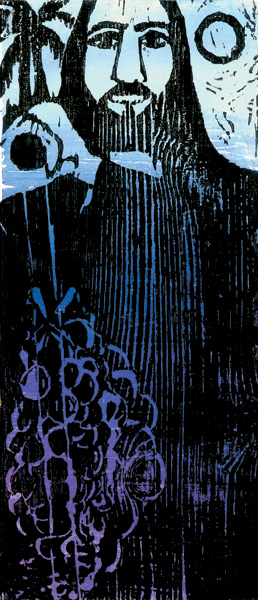Image Details

Mordechai Beck/www.mordechaibeck.com
Caleb alone carries the grapes from the Holy Land in this woodcut by contemporary Israeli artist Mordechai Beck. Although the Bible doesn’t specify which of Moses’ twelve spies carried the grapes “on a pole between two of them” (Numbers 13:22), later Jewish tradition, recorded in the mystical book the Zohar, insists that only Joshua and Caleb were strong enough to carry the massive cluster.
Artistic renderings of the spies invariably show the two men together; their image has even become the symbol of the Israeli Ministry of Tourism. Artist Beck’s prints are the only solo portraits of Caleb BR found during its extensive search for illustrations for this article. (If readers are familiar with others, we’d be eager to see them.)
The Bible, too, singles out Caleb. In Numbers 14:20–24, God announces that he alone, over Moses and all the other Israelites, will live to see the settlement of Canaan, and that his descendants will possess the land (Numbers 14:20–24). Why? Because, God says, “he has a different spirit and has followed me wholeheartedly” (Numbers 14:24). It is precisely these qualities—being an outsider of great loyalty—that may be the source for Caleb’s name, “Dog.” In the greater ancient Near Eastern world, dogs were valued for showing loyalty to their masters. Ancient literature suggests that dogs were also known as outsiders because they lived on the outskirts of cities, where they fed off refuse thrown over the city walls.
